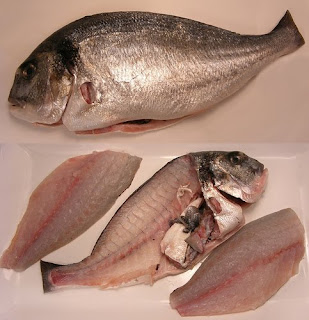New York Times Tuna Article

You can read the full article here. Once again the public gets a good dose of fear mongering. Please educate yourself about seafood consumption. My advice, moderation. Hey, I like tuna too, but I would not recommend you eat it at every meal. Just to offer an opposing opinion check this out. Or you can read this article from the 2006 conference on mercury as a global pollutant.
Mercury: selenium interactions and health implications (72-77)
Laura J Raymond, PhD; Nicholas VC Ralston, PhD.
University of North Dakota, USA
Abstract
Measuring the amount of mercury present in the environment or food sources may provide an inadequate reflection of the potential for health risks if the protective effects of selenium are not also considered. Selenium's involvement is apparent throughout the mercury cycle, influencing its transport, biogeochemical exposure, bioavailability, toxicological consequences, and remediation. Likewise, numerous studies indicate that the selenium, present in many foods (including fish), protects against mercury exposure. Studies have also shown mercury exposure reduces the activity of selenium dependent enzymes. While seemingly distinct, these concepts may actually be complementary perspectives of the mercury-selenium binding interaction. Owing to the extremely high affinity between mercury and selenium, selenium sequesters mercury and reduces its biological availability. It is obvious that the converse is also true; as a result of the high affinity complexes formed, mercury sequesters selenium. This is important because selenium is required for normal activity of numerous selenium dependent enzymes. Through diversion of selenium into formation of insoluble mercury-selenides, mercury may inhibit the formation of selenium dependent enzymes while supplemental selenium supports their continued synthesis. Further research into mercury-selenium interactions will help us understand the consequences of mercury exposure and identify populations which may be protected or at greater risk to mercury's toxic effects.
Key words mercury, selenium, mercury-selenide, selenocysteine, selenoenzymes, bioavailability, pathophysiology, mercury toxicity, selenium deficiency.
Image© 1997 King Features Syndicate


Comments